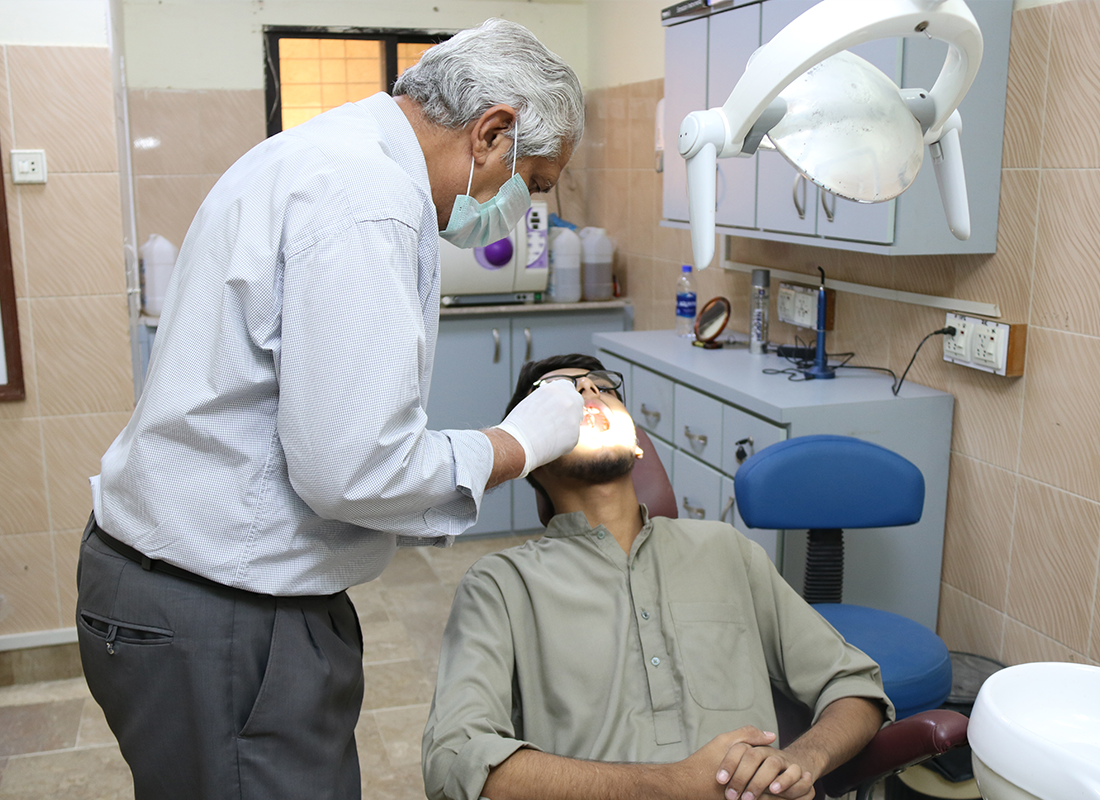Diabetes can cause oral health complications affecting teeth, gums, and mouth. Having a healthy mouth is an integral part of overall well-being for people with diabetes.
Oral health refers to the condition of teeth, gums, and mouth and is an integral part of overall well-being. For people living with diabetes, oral health becomes even more critical as they are at higher risk of developing oral health complications, such as gum disease and tooth decay. High glucose levels can contribute to oral health problems by promoting the growth of harmful bacteria in the mouth. Additionally, people with diabetes may experience delayed healing of mouth wounds and a higher susceptibility to oral thrush.
Annual dental visits are recommended to detect symptoms of gum disease, such as bleeding and swelling.

Common signs of oral health complications:
- Gingivitis: The initial stage of gum disease characterised by swollen, tender, or bleeding gums.
- Periodontitis: If left untreated, gingivitis can progress to periodontitis, causing the loss of bone and tissues supporting the teeth. Symptoms include loose teeth, bad breath, and receding gums. Periodontitis is also linked to an increased risk of cardiovascular disease.
A good oral hygiene routine is important to prevent diabetes-related oral health complications.
Pregnancy and oral health
During pregnancy, the body requires more glucose, which increases insulin production. In a healthy pregnancy, the body can effectively manage glucose levels. However, changes to bacteria in the mouth may cause complications that good oral hygiene can help prevent.
In some pregnancies, insulin resistance becomes too high, leading to gestational diabetes (GDM], causing inflammation in periodontal tissues. This inflammation affects the balance of mouth bacteria, further exacerbating inflammation and impacting blood glucose management.
Behavioural risk factors
Certain behaviours can contribute to the development of oral health complications in people with diabetes. Smoking not only increases the risk of other diabetes-related complications but also contributes to gum disease and further impacts oral health problems. If you smoke, you should stop.
Smoking not only increases the risk of other diabetes-related complications but also contributes to gum disease and further impacts oral health problems.
Managing the risks
Managing glucose levels can significantly reduce the risk of bacteria buildup that causes oral health complications. Maintaining healthy lifestyle habits is also very important, such as eating a balanced diet low in sugar and rich in fruits, vegetables, and whole grains, and engaging in regular physical activity.
Poor oral hygiene, such as neglecting proper dental care — brushing and flossing regularly — can lead to gum disease and tooth decay. A good oral hygiene routine is therefore important to prevent diabetes-related oral health complications. This includes brushing teeth twice daily and cleaning between teeth at least once a day using dental floss, a special brush, or a wooden or plastic pick recommended by a dental professional. A floss holder, floss threader, or water flosser are also suitable.
Regular dental checkups are also recommended, either annually or every six months, to help detect signs of oral health complications early. This proactive approach can provide reassurance about oral health management, especially if living with diabetes.
Multi-sectoral approach
A multi-sectoral approach, involving collaboration between healthcare professionals specialised in diabetes and dental care, can significantly reduce the risk of diabetes-related oral health complications. This comprehensive care approach not only ensures that a person’s oral health is well-managed but also improves the understanding of the interplay between diabetes and oral health, providing people with diabetes with the support they need for their overall health and well-being.
